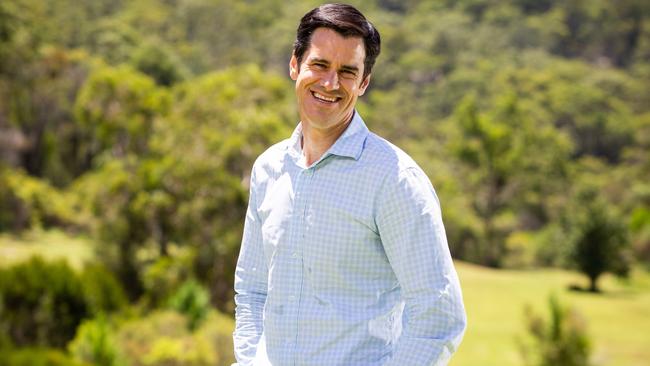Goodbye smashed avocado as COVID changes money minds for young Aussies
Young Aussies have taken a collective hit from the pandemic and it appears to be changing their money mindset.
National
Don't miss out on the headlines from National. Followed categories will be added to My News.
Young Australians have been among the biggest losers financially from the coronavirus pandemic, and it looks to have changed their money mindset more than any other age group.
The Millennial generation and their successors, Generation Z, have become much more careful with their finances, much like the previous recession in the early 1990s that shook Generation Xers.
And many face a tough battle in 2021 amid continuing underemployment, an increasingly casualised workforce and stagnant wages growth, money specialists and social researchers say.
A new study by YLab – the social enterprise arm of the Foundation for Young Australians — 89 Degrees East and Afterpay has found a COVID-19 shift to conservative money attitudes, with 80 per cent of 18-to-39 year olds now being careful about spending and believing it’s important to live within your means.
YLab executive director Brigid Canny said young adults were more than twice as likely as other generations to have lost work during the pandemic, and were the majority of workers in pandemic-hit industries such as tourism, hospitality, retail and the arts.
“We have seen the smashed-avo generation myth busted and instead are witnessing the emergence of a savvy generation making smart, mature decisions,” she said.

“They’re actually more financially mature and cautious about money than they often get given credit for.
“Young Australians want to make good financial decisions, they are striving to do the right thing, and they are desperate for knowledge – but they can’t always see what ‘good’ looks like. Helping them build their financial resilience and literacy is crucial.”
Social researcher Mark McCrindle said the first Millennials – also called Generation Y – turned 40 in 2020 and the youngest were now aged 26.
Generation Z were born between 1995 and 2009, he said, and both generations had become more resilient during the pandemic, which had hit them the hardest financially.
“When you’re a bit older you can ride out the storms a bit more,” Mr McCrindle said.
COVID delivered valuable financial lessons, he said.
“It builds a resilience and mindset that job security matters. I think we will end up with a generation that won’t be disparaged or seen as snowflakes not handling uncertainty.

“Generation X were the last generation that got their property early and moved ahead. The recession was key for them and I think this one will be the same.”
Ruvimbo Togara, 24, said she saved money during lengthy lockdowns in her home city of Melbourne and was inspired to become more entrepreneurial with her business Ruve Cosmetics.
“It was a catalyst for me to start thinking about my future,” she said.
“I’ve been fortunate enough to receive Jobkeeper but there’s a much deeper awareness about money for me.
“Because I have a big vision for my life, I want to start looking at ways I can make sure I will be fine even if a recession does happen or if another pandemic comes along.”
Separate research by ridesharing service DiDi Australia has discovered a distinct shift in Millennials and Generation Zs to become active savers.
“The pandemic has had a profound effect,” said DiDi general manager Lyn Ma.
He said financial uncertainty would continue in 2021 and COVID’s changing money mindsets would benefit today’s young adults over the long term.

“We have noticed a greater balance – there is still going to be an understandable desire to travel, socialise and eat out but an awareness of searching for discounts and vouchers, as well as setting aside monthly income to savings, in order to secure financial health.”
Money coach, author and Five 2 Money Diet founder Max Phelps said the pandemic made people getting paid regularly feel grateful for what they had “and also realise how cheap living could be during a lockdown”.
He said each generation seemed to be worse than the previous one at saving and preparing for their future, and managing money had become more and more complex.
“We live in the Instagram age when a new outfit, tattoo, lip fillers, or latest and greatest gadgets can all be quickly photographed and posted with the help of 60 months interest free, Afterpay and other easy finance options,” Mr Phelps said.
“The reality is that Baby Boomers, Generation X and Gen Y are all spending more than they should – it’s just that the older ones had some good savings years first, whereas Gen Y have to find their own way.”
COVID’S IMPACT ON YOUNG MONEY MINDS
• 32% are spending less on impulse buys
• 42% are more careful with their money
• 24% are earning less
• 32% are hunting for deals more often
• 36% are trying to save more
• 45% of Millennials and 32% of Gen Z are saving for a home deposit
Sources: YLab, DiDi Australia





